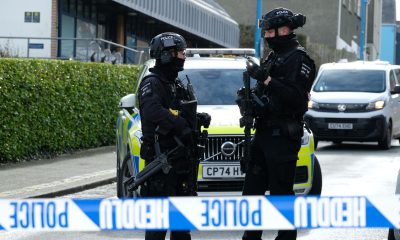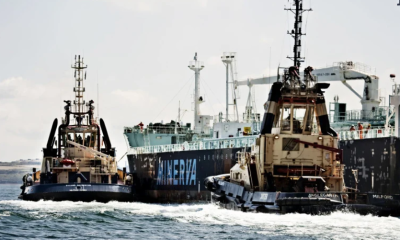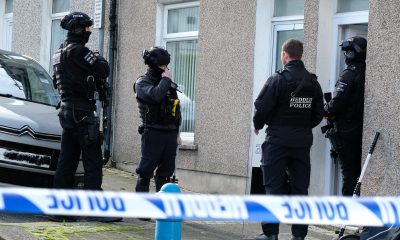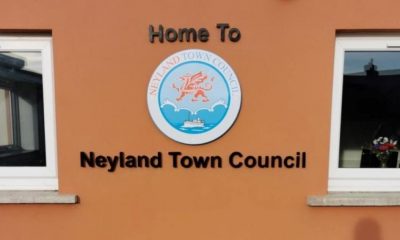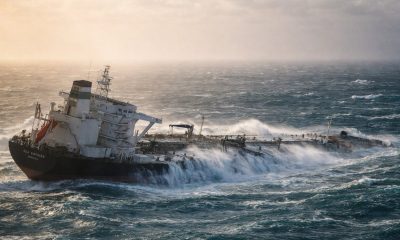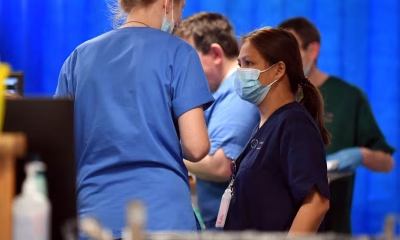News
Milford Haven: Five people arrested for modern day slavery
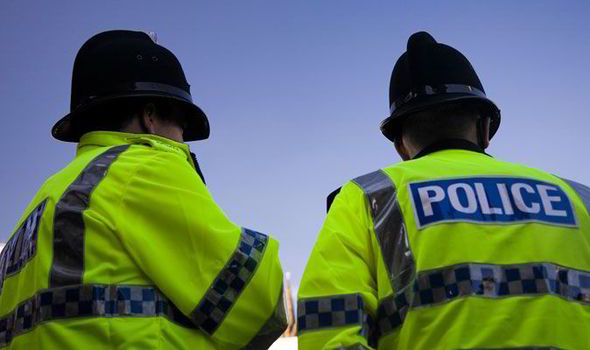
 A GROUP of five people have been arrested in Milford Haven this morning (May 17) in relation to modern day slavery.
A GROUP of five people have been arrested in Milford Haven this morning (May 17) in relation to modern day slavery.
The persons were arrested on gangmaster offences in a joint operation between Dyfed-Powys Police, Pembrokeshire County Council and the Gangmasters and Labour Abuse Authority.
Today is Dyfed-Powys Police’s Force Day of Action, which has a focus on tackling individuals and groups who take advantage of those who are most vulnerable to exploitation.
A police spokesperson said: “Police in Milford Haven have this morning executed warrants at addresses in Milford Haven linked to modern day slavery. This is a multi-agency operation between Dyfed-Powys Police, the Gangmasters and Labour Abuse Authority, and Pembrokeshire County Council.
“As a result of the warrants, 5 people have been arrested on suspicion of gangmaster offences, and have been conveyed to police custody.”
Superintendent Ian John, BCU Commander for Pembrokeshire and force lead on today’s activity, said: “Abuse of the most vulnerable more often than not takes place behind closed doors or in dark corners. Today is about shining a light on those spaces and raising awareness of the tell-tale signs.
“We are running multiagency operations across the force to raise awareness of the signs that might suggest someone is being exploited and, are confronting head on those who are known to be offending.
“If you know about it, report it. The exploitation of the most vulnerable cannot be tackled by us and our partners alone. Our communities have a big part to play in this.
“We police the safest towns and villages across England and Wales, but we know that that means little to those who are living with the misery, torment and pain of criminal exploitation day-in day-out. We need to hear from you if you are suffering. We also need you to tell us if you suspect that others are being taken advantage of.”
There are a number of signs that can help identify victims of trafficking:
- Not having a passport or other means of identification
- They are withdrawn and refuse to talk to, or appear afraid to talk, a person in authority
- They are unable, or reluctant to give details of accommodation or other personal details
- They work in various locations
- Having limited freedom of movement
- They perform excessive housework chores and rarely leaves the residence
- They have low or no salary or are permanently deprived of a large part of their earnings by another person
- Being escorted whenever they go and or return from work and other activities
- They work long hours or have few/no days off
- They sleep where they work
- They have no privacy, sleeping in shared and over-crowded spaces
- Security measures are in place to keep them at the work place, for example locked doors and windows
- They are not dressed properly for the work they do, for example they don’t have protective equipment or warm clothes.
If you suspect slavery is happening near you please report it to police on 101, in an emergency always dial 999 or call the Modern Slavery Helpline on 0800 012 1700.
Crime
Repeat drug-driver banned for three years after Pembroke stop
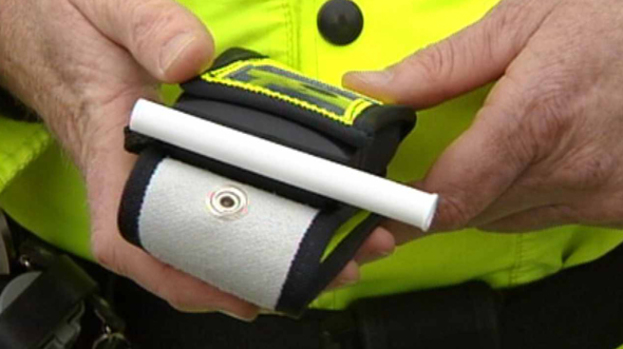
Motorist was over legal limits for both cannabis and cocaine metabolite, court hears
A 35-YEAR-OLD Pembrokeshire motorist has been disqualified from driving after being caught behind the wheel while over the legal drug-drive limit.
Police received information on November 11 that David Webb had been driving a Kia Sorento along Buttermilk Lane, Pembroke, after taking drugs.
When stopped by officers, Webb admitted he had smoked cannabis the previous night. A roadside drug swipe tested positive, and subsequent blood analysis at the police station revealed 101 micrograms of benzoylecgonine — a cocaine metabolite — per litre of blood, along with 2.3 micrograms of Delta-9 tetrahydrocannabinol (THC). The legal limits are 50 and 2 micrograms respectively.
Haverfordwest Magistrates’ Court heard this was Webb’s second drug-driving conviction, following a previous offence in October 2023.
Webb, of Strongbow Walk, Pembroke, was sentenced to a 12-month Community Order requiring him to complete 15 Rehabilitation Activity Requirement days and 100 hours of unpaid work.
He was disqualified from driving for three years and ordered to pay a £114 surcharge and £85 costs.
Crime
Driver banned after refusing breath test despite admitting drinking

Motorist also damaged police cell blanket after arrest, court hears
A PEMBROKESHIRE motorist has been banned from the roads after repeatedly refusing to provide a breath sample despite admitting he had been drinking alcohol.
Police were called to Glenview Avenue, Pembroke Dock, on the evening of January 3 following a report from a member of the public who was concerned about a man sitting in a car who appeared to be under the influence.
Prosecutor Linda Baker told Haverfordwest Magistrates’ Court that officers found the man, later identified as Sean Cook, appearing intoxicated while sitting in the vehicle.
“He appeared to be intoxicated and said he was listening to the radio,” she said.
Cook told officers he was not fit to drive because he had consumed alcohol. He was asked on three separate occasions to provide a breath test but refused each time.
The court heard he was obstructive throughout the encounter and refused to answer questions about his alcohol consumption.
Following his arrest, Cook was taken to Haverfordwest Police Station where he damaged a custody cell blanket by pulling out its stitching.
Cook, aged 58, of Glenview House, Glenview Avenue, Pembroke Dock, pleaded guilty to failing to provide a specimen for analysis and causing criminal damage.
He was disqualified from driving for 18 months and sentenced to a 12-month Community Order, which includes 10 Rehabilitation Activity Requirement days and a 120-day Alcohol Abstinence Monitoring Requirement.
He was also ordered to pay £100 compensation for the damaged blanket, a £114 surcharge and £85 costs.
Crime
Telecom vandal admits causing £33,000 damage to Pembroke Dock network

Fibre cables cut in early-morning incident that triggered major service disruption
A PEMBROKE DOCK man has admitted causing more than £33,000 worth of damage to a telecommunications network after cutting through fibre optic cables in the early hours of the morning.
Mickey Probert, aged 37, was seen lifting a drain cover in Wavell Crescent at around 3.50am on January 23, 2024, before entering an underground chamber and cutting through fibre infrastructure belonging to OGI.
Prosecutor Linda Baker told Haverfordwest Magistrates’ Court that Probert had accessed a telecom footway chamber and cut through micro ducting and fibre cables.
Suspicions were raised when a nearby resident was woken by loud clanging noises and saw a man acting suspiciously near green utility boxes.
“The witness saw a male bend down in front of the boxes, lift the covers and shine a headtorch towards the ground,” she said.
Following a description provided by the witness, police arrested Probert. A search of his property uncovered wire cutters, a headtorch and a woolly hat.
The total cost of the damage to the OGI network was calculated at £33,767.98.
Defence solicitor Tom Lloyd said his client was unable to explain his actions but was extremely remorseful.
“He has a lot of things going on that haven’t properly been explored,” he told the court.
Probert, currently of no fixed abode, pleaded guilty to criminal damage.
Given the seriousness of the offence, District Judge Mark Layton declined jurisdiction, meaning sentencing must take place at a higher court.
Probert will now be sentenced at Swansea Crown Court on March 10. The court requested an all-options probation report ahead of the hearing.
(Cover image: File photo)
-
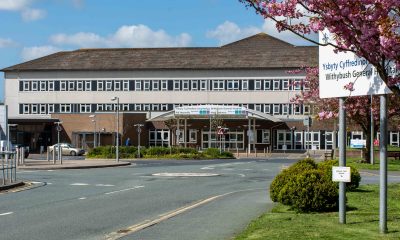
 Health6 days ago
Health6 days agoHealth Board to decide future of nine key services at two-day meeting
-

 Business11 hours ago
Business11 hours agoMS’s host business advice surgery following demand from Business Rates Online Forum
-
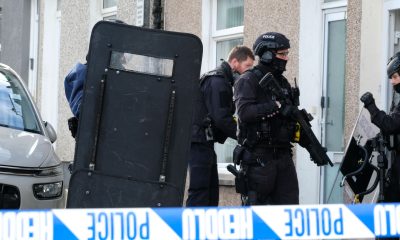
 Crime4 days ago
Crime4 days agoFour arrested in armed police operation across Pembroke Dock
-

 Community2 days ago
Community2 days agoHywel Dda hospital services decisions will be made next week
-

 Crime7 days ago
Crime7 days agoPublican admits supplying cocaine and cannabis at Crown Court
-

 Education4 days ago
Education4 days agoSchool in special measures after inspectors raise safeguarding and leadership concerns
-
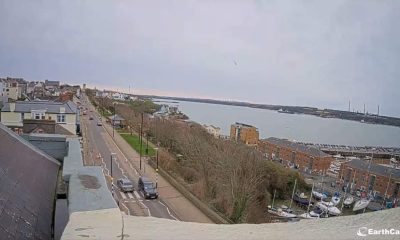
 Community3 days ago
Community3 days agoSecond Milford Haven webcam launched after 1.3m views and US TV feature
-
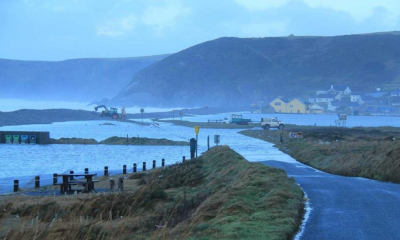
 Climate7 days ago
Climate7 days agoPlans for £40m Newgale coastal road upgrade put on hold














